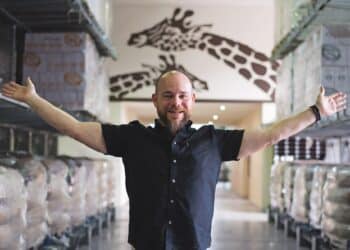Why hospitality will need the same level of support as other industries if the Australian economy is to recover.
Without the $44.6 billion spent by international tourists in Australia each year, the Australian Government is obligated to incentivise domestic business spending during the economic recovery.
According to the Australian Government, the Hospitality and Tourism industries represents 925,000 employees or 8.1 per cent of all workers and more than 160,000 individual businesses. In the 2020-21 Federal Budget, there are many winners. However, there is a significant lack of direct support for the Food & Beverage (F&B), Entertainment, Travel and Tourism industries outside of broader benefits to businesses.

These industries and their employees have been, and continue to be, some of the worst affected by COVID-19. They have suffered through:
- Full lockdowns
- Limited business operations
- State governments not adopting to the National Cabinet Mandatory Code of Conduct on commercial leasing
- Modified trading conditions setting a future of increased operational costs.
Unfortunately, all the benefits provided in the budget have issues or limitations on there effectiveness or speed. The rate of capital flow is the central issue.
Businesses on life support or coming off it, may not have the capital reserves to benefit from the new asset write-offs caps.
Jobkeeper subsidies may not be enough or no longer available while trading conditions continue to be suppressed. Therefore, employees will be let go if the underlying businesses financial position does not improve to pre-COVID levels.
Tax cuts to individuals may increase discretionary spending. However, it may or may not flow to hospitality and tourism businesses while travel is still restricted and personal health risks are still prevalent.
What stimulus would make a difference to the hospitality and tourism industries, that would also be cost-effective and quick to have a real-world impact? Remove ‘Entertainment’ from Fringe Benefits Tax (FBT). Entertainment under FBT includes, for example, meals and drinks or staff social functions; sporting or theatrical events, sightseeing tours, and holidays; and entertaining employees and non-employees (such as clients) over a weekend at a tourist resort. Essentially, this change would remove a barrier for businesses to help stimulate the economy.
F&B transactions are typically in smaller amounts and higher frequency than capital equipment. This increased velocity of capital in F&B spending is also exponentially faster compared to large infrastructure projects, manufacturing, or construction projects. F&B spending also creates more stable jobs in hospitality.
The community benefit increases as fudning reaches more individuals pockets and sooner.
Businesses will also be able to increase their domestic travel expenditure, as well as reward and retain their current workforce via more entertainment spending – think Christmas parties, coffee meetings, and the like. Backdating the stimulus package for FY21 and continuing through FY22/FY23, the effect of this package on the economy would be felt upon implementation. It would bring forward the government’s desired stimulus outcomes and potentially increasing the consumer confidence index, as F&B spending is an emotional and mental health enabler.
But what is the cost? According to the Australian Government’s own review of the FBT system, it was designed to fill a perceived gap in the income tax base. However, its highly prescriptive rules to cover every possible fringe benefit make it very complex. The revenue from FBT equates to only $4.3 billion – less than 1 per cent of Australia’s annual tax revenue – with many Australian accountants estimating its cost on employers outweighs the value of its collected revenue.
Costs associated with self-assessing tax systems, like record keeping and external fees, may be disproportionately high for small businesses, relative to their turnover, income, and number of employees.
More than 925,000 Australian workers and their employers need support inline with other industries in these novel times. By removing “Entertainment” from FBT, the Australian Government can provide a stimulus package that will make an immediate and sustainable difference to these individuals and small businesses. It will not only save businesses billions on FBT reporting costs, but also incentivise them to drive the economic recovery of Australian hospitality and tourism.
For more information, visit www.australianspecialtycoffee.com.au




